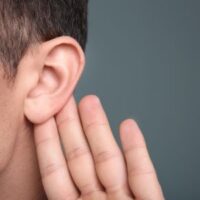Can I Receive Pennsylvania Workers’ Compensation Benefits for Long-Term Hearing Loss?

Pennsylvania’s Workers’ Compensation Act requires employers to provide certain benefits to employees who suffer permanent injuries as the result of a work-related accident or exposure to an occupational hazard. This includes a disability that develops over an extended period of time. For example, Section 306 of the Workers’ Compensation Act authorizes an award of benefits to an employee who sustains a “permanent loss of hearing” due to “long-term exposure to hazardous occupational noise.”
The employee always has the initial burden of proof that they sustained a permanent injury as defined by the Act. This means presenting medical expert testimony. The employer may respond with their own medical experts who will claim that, even if a disability exists, it is the result of some other cause than an occupational hazard.
Pa. Court Upholds Award of Benefits
A recent decision from the Commonwealth Court of Pennsylvania, FirstEnergy Nuclear Operating Company v. Koch, provides a helpful illustration. In this case, a 61-year-old male employee who worked for a utility company filed a workers’ compensation claim stating he suffered permanent hearing loss due to exposure to occupational noise.
The employee first joined another utility company in 1977 as a “cable man” cleaning out manholes using a machine that generated noise roughly equivalent to 100 lawnmowers. Six years later, the employee moved to another power company where he was also “exposed to considerable noise” while working directly with the power station’s machinery. In 2009, the claimant moved to his final employer, where he was also responsible for working with various noisy instruments at a power station.
The employee retired in 2016. He subsequently filed a workers’ compensation claim in 2019, alleging that he had suffered from progressively worsening hearing loss since at least 2002. A doctor who examined the employee in connection with his workers’ compensation claim testified that it was “within a reasonable degree of medical certainty” that the hearing loss was work-related. The employer presented testimony from its own doctor, who also examined the employee, and concluded that while there was no question the employee had suffered hearing loss, it was likely related to his age rather than his employment.
A Pennsylvania Workers’ Compensation Judge held a hearing and determined that the testimony from the employee’s doctor was more credible. The judge awarded the employee roughly 69 weeks of workers’ compensation benefits for his work-related hearing loss. The employer appealed, but both the Workers’ Compensation Appeal Board and the Commonwealth Court upheld the decision to award benefits. The Commonwealth Court noted the employer never contradicted the employee’s testimony that he was exposed to “hazardous” noise over a long period of time in his job. Rather, the employer simply pointed to the testimony of their expert, who concluded the employee’s hearing loss was “0 percent” the result of occupational exposure. The Court said it could not re-weigh the determination of the judge, however, so the ruling stood.
Contact a Carbon County Workers’ Compensation Attorney Today
Workers’ compensation may be a no-fault benefit system. But that does not mean that an employer–and its insurance company–will not try to fight you tooth and nail when it comes to awarding benefits. An experienced Leighton workers’ compensation attorney can represent you in filing a claim. Contact the Law Office of Kim M. Gillen, P.C., today to schedule a consultation.
Source:
scholar.google.com/scholar_case?case=4706422024098522890

